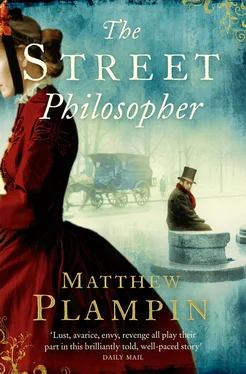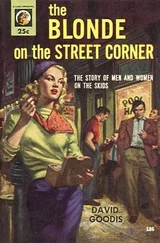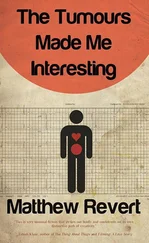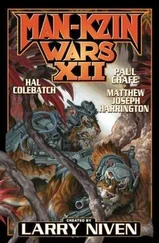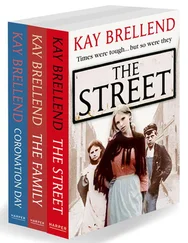Cracknell, though, clearly suffered from no such anxieties. Lighting a fresh cigar, he called the Courier team to order and adopted an easy, business-like tone. ‘Now, my lads, the French are pretty certain that they’re taking the right flank. Apparently there’s a coastal path that the Russians have neglected to defend. A back door left unlocked, if you like. What of the British plan, Thomas?’
Kitson readied his pocketbook. ‘I have a complete list of the divisions, Mr Cracknell, and of the battalions in each, and have made a note of their current positions–but as to the strategy they are to follow, I could discover nothing, nothing at all. It seemed almost as if there isn’t one.’
The senior correspondent chuckled. ‘This is Raglan we’re talking about. Wellington will always be his master in matters of warfare. The Bear up a hill, John Bull lined up in front of it–Kitson, old fellow, I wouldn’t be surprised if he just marches the poor bastards straight towards ’em, to weather the fire as best they can.’
Kitson hesitated. ‘Surely not.’
Cracknell shrugged, unconcerned. ‘We shall see, shan’t we?’ He got to his feet, tapping off some ash and squeezing himself between his subordinates; Styles promptly moved another six inches along the wall.
‘Can I ask how we are to, ah…’ Kitson took a steadying breath. ‘How will we conduct ourselves, sir, once the fighting starts?’
Cracknell grinned mischievously. He turned towards the illustrator. ‘Tell me, young Styles, if you were preparing a painting for the Academy, a scene from Shakespeare–from Hamlet , say–would you choose to present the protagonists, the Prince and his whole unhappy family, as one might see them from the front row, in all their terrible splendour? Or from the top of the upper circle, as no more than little dots scampering around the stage like trained fleas?’
‘From the front row, of course.’ There was a hard, competitive edge to Styles’ voice. Kitson realised that he was determined to prove himself equal in courage and dedication to Cracknell–equal to the man who had won the heart of Madeleine Boyce. This was a troubling development. Their expedition on to the battlefield was being warped into a contest of daring.
Removing the cigar from his lips, Cracknell pointed at the illustrator in triumph. ‘Exactly, lad– exactly . And that is how we shall position ourselves in order to depict this battle. In the very front row.’ He leant around to deliver a firm pat to Kitson’s shoulder. ‘We want the truth, my friends, and the truth we shall obtain. Are we agreed?’
‘We are,’ Kitson replied, trying to suppress his uneasiness. ‘Wherever you lead us, sir, we shall endeavour to follow, with our pens at the ready.’ Styles nodded in mute agreement.
Cracknell was satisfied by this display of allegiance. ‘I’m glad to hear it. And you must not fall prey to fright, d’ye hear me? The British Army, on the field of battle, is highly methodical; Christ, it’s almost mechanical . These men have their formations and tactics seared on to their brains. They run on rails, and I know what to expect. We’ll be quite safe. It’s just a matter of staying alert, that’s all.’
A bugle sounded, some distance away. The time was upon them. Kitson stood, and looked over at the sea of waiting troops. The officers were gathering together, conferring and pointing. Another bugle echoed the first, and then another; then a host of them, all making the same call. Slowly, the army climbed to its feet, the many thousands of boots rumbling like a great landslide as they stamped in the dust. Sergeants shouted for attention, whilst officers moved to the front of their battalions. Kitson felt a cold shiver of nausea. Inside him, behind the valiant certainties so forcefully elicited by the senior correspondent, lurked something else, something uncomfortably insistent and full of doubt; something that might well be fear.
This would not do–he had to keep hold of himself. He had his responsibilities, and not just to the paper. He looked over at Styles. The illustrator was holding his drawing folder in both hands, looking down at his boots with his felt hat pulled low over his eyes. His bottom lip was protruding slightly, an oddly child-like mannerism.
‘This is it, my fine fellows!’ cried Cracknell, leaping eagerly from the wall. ‘This is it, by George! Think of the glory, of the work we shall produce! The Bear is to be soundly rebuked for his blundering incursions into helpless Turkey–and we will be here to see it! This will be the making of us all, you mark my words! Come, we must get ourselves forward.’
As Styles strode wordlessly towards the soldiers and out of earshot, Kitson signalled to Cracknell that he wished to speak. The senior correspondent paused, listening with a tolerance his junior knew would be but momentary.
‘Whilst I don’t for an instant question the wisdom of advancing with the attacking divisions, Mr Cracknell,’ Kitson began carefully, ‘I do find myself wondering what would happen should we be separated from our forces in the thick of the fighting. Do you think there is a significant risk of capture, or of—’
‘Is that fright I see there, Kitson?’ Cracknell broke in, his voice harsh. ‘Are you choosing this moment to show a womanish side? You’re not going to let us down, I hope–myself, or young Styles there, or Mr O’Farrell back in London, who trusted you, an art correspondent, with this vital task?’
‘No, Mr Cracknell,’ Kitson replied firmly, ‘my will is strong, I assure you. My concern is primarily for Mr Styles. He has only been with us for two days. I am worried that he is not ready, and deserves our protection.’
Cracknell’s bright flash of scorn faded quickly to patronising amusement. He wrapped a conciliatory arm around Kitson’s shoulders. The junior correspondent could smell the liquor on his breath, and see the shadow of dirt behind his ear. ‘Ha! Uncle Thomas wants to look out for his best lad, eh? Well, no harm in that. You’re alarmed, man,’ he continued soothingly, ‘and it’s an alarming situation, to be sure. Perilous indeed, as you say–the guns, the Russians, vermin like Nathaniel Boyce leading our own. But you need to have a little faith,’ he jabbed Kitson’s collarbone with his finger in emphasis, ‘in the resourcefulness of your senior.’
He pulled back his jacket to reveal an object within, poking awkwardly from his inside pocket. At first, looking past Cracknell’s smirk, and the solid roundness of his belly, Kitson could not identify it. He could see a handle of polished walnut, hard and shiny amidst the grimy folds of Cracknell’s clothes, from which stemmed greased metal mouldings, delicate parts carefully fitted together. Was it a tool of some kind? A new model of telescopic device, perhaps, which might enable them to hang back from the worst of the fighting?
But then he saw the chambers, and the long tube of the barrel, jutting down through Cracknell’s jacket towards the small of his back. It was a revolving pistol.
2
Ten thousand men, four divisions of line infantry, marched across the plain towards the Russian guns. Music from a dozen regimental bands mingled together to form a dense martial cacophony. The battalion from the 99th was advancing at the centre of the Light Division, arranged into two long rows with its colours raised. Boyce, riding out in front, looked back over his troops with pride. The hours of drilling on the parade ground were showing their worth. Not a single private was out of place–more than could be said for some other parts of their division. He permitted himself a dry smile. Finally, after almost twenty years of service, he was leading men into battle. The Russians must be quaking in their boots, he thought, at the discipline, at the courage on display. What a glorious sight they must be!
Читать дальше
